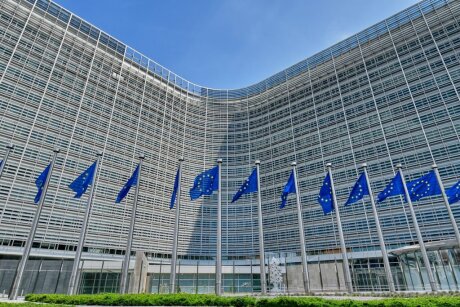European funding of dual-use technologies: concerns and revendications from Leru, Cesaer and VLIR
VLIR (the Flemish Interuniversity Council), Cesaer (the association of Universities of Science and Technology in Europe) and Leru
League of European Research Universities
(a consortium of European research universities) express their reactions, on 24/04 and 30/04/2024 respectively, after the publication of the European Commission's White Paper "On options for enhancing support for research and development involving technologies with dual-use potential" in January 2024.
VLIR says it "understands the need to focus on the EU
European Union
’s strategic autonomy and acknowledges that EU research institutes should play a vital role in strengthening the security of the EU".
"Leru has many concerns over the removal of the ‘exclusively civil’ clause in the Framework Programme, yet understands that the boundaries are increasingly blurry and the removal of the exclusively civil focus would simply reflect a new reality."
On the other side, Cesaer "appreciates the proposal’s potential to address the new geopolitical situation through research and innovation, and see its strength as an enabling tool for advancing research integrity".
The European Commission wishes to enhance research and development of dual-use technologies in its new multiannual framework programme to reinforce the EU's defence strategy "in the face of existing and emerging geopolitical challenges outlined in the European Economic Security Strategy".
Currently, Horizon Europe only targets civil applications (research on dual-use technologies is possible but the intent needs to be exclusively civil). Defence research activities are funded under the EDF
European Defence Fund
(European Defence Fund).
A need to explore possible options for European funding
The Commission's propositions for dual-use technologies R&D
"Dual-use" refers to "R&D support about software and technology that has the potential to be used for both civil and military purposes", says the Commission.
Universities express their positions and demands
VLIR "asks the Commission to further clarify"
VLIR tends toward the first option, as it "promotes stronger synergies between the 10th framework programme and other funding channels to facilitate the development of defence technology".
But the council "asks the Commission to further clarify the synergies between FP10 The next Framework Programme for Research, currently referred to as FP10 -projects and defence-focussed R&D programmes, to communicate clearly on these funding opportunities, and to provide clear guidelines on how synergies between FP10-projects and defence-oriented follow-up projects can be realised".
VLIR also "asks the EC European Commission to provide clear guidelines on the necessary assessments, the responsibilities of both Member States and research organisations, and the requirements to be met by applicants and their institutions".
Cesaer: "The enhancement of the EDF should go hand in hand with the fortification of the FP10"
For Cesaer, "the enhancement of the EDF European Defence Fund should go hand in hand with the fortification of the framework programme for research and innovation".
Fewer countries are associated with EDF than with Horizon Europe, which means that it remains the indispensable instrument for safeguarding and boosting science & technology cooperation with partners both outside and inside Europe, including notably Switzerland and the United Kingdom. »The association wants "to expand the impact of EU European Union defence-related funding instruments, particularly through the European Defence Fund, by:
- Positioning the EDF as a key tool for advancing dual-use technologies across a broader spectrum of the knowledge value chain, including through dedicated research actions.
- Reinforcing efforts to attract new participants (particularly from universities) to engage directly in research and innovation activities within the EDF’s scope, including those related to dual-use technologies".
Cesaer also calls on the European Commission to "strengthen synergies and minimise duplication between Horizon Europe and EDF by:
- Increasing the number of ‘spin-in’ calls in EDF where new scientific knowledge and technology from the civilian sector are attracted towards the defence sector.
- Introducing ‘spin-out’ calls in EDF to support new (or strengthen existing) connections from the defence towards the civilian sector.
Leru: "A rapid implementation better adapted to the urgency of the geopolitical climate"
Finally, Leru declares a "strong preference for Option 1", as it "would aim to improve the current set up and leverage measures already introduced to stimulate both research on technologies with dual-use potential with civil and defence applications, such as the European Innovation Council Transition Scheme and the EU Defence Innovation Scheme".
"This option would be possible within the current Multiannual Financial Framework but would require better coordination on the EU level", according to the league.
This option would ensure that EU programmes "will maintain their very clear focus on either civil or defence R&D Research & development , thereby avoiding duplication. It offers the possibility of rapid implementation within the current Multiannual Financial Framework, better adapted to the urgency of the current geopolitical climate and suggests that new funding for dual-use technologies will become available.
Finally, the non-eligibility/exclusion of associated and third countries in Horizon Europe would be kept to a minimum, which would allow long-standing research collaborations to continue".
Leru also asks the Commission for "methods and procedures to clarify these synergies, to enable researchers to understand and fully utilise the funding landscape".

